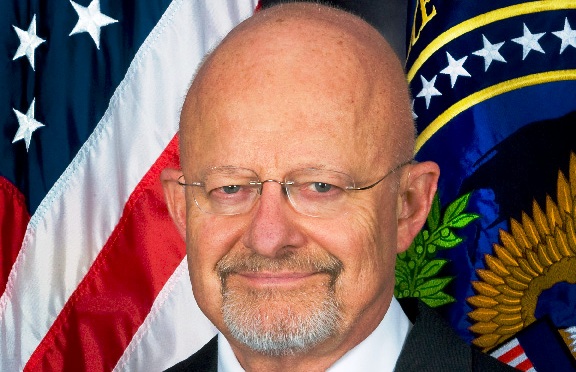30 Oct 2013 | Events

Confirmed speakers:
Alan Rusbridger
in conversation with William Sieghart
David Davis MP
Sir Simon Jenkins
Jo Glanville
Tom Watson MP
RIBA
66 Portland PAce
London W1B 1AD
Monday, 4 November 2 0 1 3
6.4 5 – 9.0 0 P M
RSVP: [email protected]
Revelations about mass surveillance operations by the NSA and GCHQ have caused outrage in Europe, South America and the United States. There have been demonstrations and angry interventions by heads of state, and even President Obama concedes that a debate needs to happen. But in Britain protest and discussion are very close to being silenced.
The Guardian newspaper, which led the New York Times, the Washington Post and Der Spiegel in publishing material from the NSA leaks, is almost alone in believing that mass civilian surveillance is a matter of vital public interest. And now the British government, Parliament’s Intelligence and Security Committee, the intelligence agencies and even some sections of the media seek to isolate the Guardian and shut down the debate with claims that these disclosures aid terrorists and put national security at risk.
This must not be allowed to happen. This independently organised meeting at RIBA, on November 4, is called to support the Guardian’s reporting and to assert the right to a full national debate, involving all parties, about surveillance powers and the need to ensure
that the intelligence services work within the rule of law and are subject to genuine Parliamentary scrutiny and oversight. That is the only way for a democracy to react to revelations that affect everyone’s liberty.
Supporters include: Timothy Garton Ash (Oxford University and author of The File), Anthony Barnett (Cofounder Charter 88 and openDemocracy), Rory Bremner (Writer and performer), John le Carré (Author), David Davis (Conservative MP), Brian Eno (Musician and producer), Stephen Frears (Director), Alex Graham (Founder and CEO, Wall to Wall TV), Baroness Helena Kennedy QC (Lawyer and Principal of Mansfield College, Oxford), Peter Kosminsky (TV director and governor of BFI), Simon McBurney (Founder and artistic director, Theatre Complicite), Suzanne Moore (Columnist), Lord Pannick QC (Leading public law and human rights lawyer), Dr Elaine Potter (David and Elaine Potter Foundation), Philip Pullman (Writer), Richard Rogers (Architect), Ruthie Rogers (Chef), Philippe Sands QC (Leading human rights lawyer), Juliet Stevenson (Actor, writer and director), Neil Tennant (Singer-songwriter), Jimmy Wales (Founder, Wikipedia) and Sam West (Actor).
Also supported by the following organisations: Index on Censorship, Big Brother Watch, Human Rights Watch, openDemocracy, Open Rights Group, English PEN, The Manifesto Club, and Reprieve
24 Oct 2013 | Campaigns, Europe and Central Asia, Events
Index on Censorship wants Europe’s leaders to place the issue of surveillance on the agenda for the European Council Summit. Our petition calling for this, backed by 39 organisations and thousands of individuals, was this week sent to Lithuanian President Dalia Grybauskaitė, who currently hold the Presidency of the Council of the EU, and Herman van Rompuy, President of the European Council.
Since the petition targets all 28 EU leaders, we wanted each of them to have their own copy. But as revelations continue to emerge about the scale to which electronic mass surveillance has been taking place, we didn’t think email would be the safest way to distribute it. Instead, we decided to send our intern Alice to deliver the petitions to embassies around London – the old fashioned way.
Marek Marczynski, Index’s Director of Campaigns and Policy, explains how mass surveillance infringes on your right to freedom of expression, and why we must oppose it.
30 Sep 2013 | Digital Freedom, Guest Post, News, Pacific Standard

NSA operations center in 2012 (Photo: Public Domain)
A few days ago the European Parliament’s Office of Citizens’ Rights and Constitutional Affairs released a notably pointed briefing paper arguing for Europe to stop trusting American Internet services. The briefing and the committee are the latest forum tosuggest that European states create domestic cloud computing capacities to provide member states legal protection for NSA data surveillance. The report has the not-at-all-subtle title “The US National Security Agency Surveillance Programmes (PRISM) Foreign Intelligence Surveillance (FISA) Activities and Their Impact on EU Citizens’ Fundamental Rights.” Among the findings:
Prominent notices should be displayed by every US web site offering services in the EU to inform consent to collect data from EU citizens. The users should be made aware that the data may be subject to surveillance (under FISA 702) by the US government for any purpose which furthers US foreign policy.
The argument there being that people will have an incentive to find other websites to use. Particularly for e-commerce. Companies like Amazon, and U.S. airlines and ticketing agencies—Expedia and the like—won’t be pleased, and that in turn will create economic pressure to alter surveillance strategy, the report argues.
A consent requirement will raise EU citizen awareness and favour growth of services solely within EU jurisdiction. This will thus have economic impact on US business and increase pressure on the US government to reach a settlement.
That isn’t all. The report argues for the European Union to simply swear off U.S.-based cloud computing, and to develop local capacity. Again, the argument is largely economic.
Such a policy would reduce US control over the high end of the Cloud e-commerce value chain and EU online advertising markets. Currently European data is exposed to commercial manipulation, foreign intelligence surveillance and industrial espionage. Investments in a European Cloud will bring economic benefits as well as providing the foundation for durable data sovereignty.
Further along, the report notes the different ways the NSA scandal has been understood inside and outside the US. Inside the U.S. a key issue was whether the NSA has been spying domestically, on U.S. citizens, and the implications of that question for domestic data security. Abroad, the report notes, people are understandably more interested in their own ability to protect personal data from the NSA. The briefing suggests E.U.-U.S. negotiations on data security, though efforts at such negotiations have failed previously.
…a casual reader would not understand that the intended target of surveillance was non-Americans, and that they had no rights at all. It seems that the only solution which can be trusted to resolve the PRISM affair must involve changes to the law of the US, and this should be the strategic objective of the EU. Furthermore, the EU must examine with great care the precise type of treaty instrument proposed in any future settlement with the US. [boldface as printed] Practical but effective mechanisms are also needed to verify that disclosures of data to the US for justifiable law enforcement investigations are not abused.
In sum, Europe’s still upset, and talking seriously and in public about how to protect itself from American eavesdropping. Yesterday, Slate‘s Ryan Gallagher flagged a want ad for a counterintelligence professional posted on a Parliament website last July, shortly after the Edward Snowden affair broke. The same body is housed in a Brussels building ID’d as an NSA target in the Snowden papers, according to the Slate report.
This article originally appeared at Pacific Standard. Pacific Standard is an arm of the nonprofit Miller-McCune Center for Research, Media and Public Policy.
27 Sep 2013 | Digital Freedom, News, Pakistan

NSA head James R Clapper
Dear Mr Clapper,
We are reaching out to you with important information that may be of crucial value in preserving your organisation’s integrity and purpose. As citizens of Pakistan, we feel there’s an unexplainable bond, a debt if you’d like to call it, that we owe to your agency; after all, we are the second most interesting people in the world in your ever-vigilant eyes. We are therefore writing to raise with you an issue of extreme importance & national security.
The information here is highly critical and can jeopardise our security if leaked; you see, the world does not really recognise whistleblowers as yet. We trust you to keep this to yourself.
The government of the United Kingdom and the government of Canada are both involved in activities that may be considered by you a grave violation of the sovereignty of your organisation. Independent research group The Citizen Lab – truly independent as they do not take government or corporation support – has revealed the presence of Netsweeper and FinFisher equipment in Pakistan, belonging to companies with headquarters in Canada and the United Kingdom respectively.
It is baffling that these two respected governments, your notable allies, have not taken the necessary steps to disable these equipments, or at the very least stopped the trade. FinFisher for one has been used actively in Bahrain, aiding the Bahraini government in cracking down on activists, including an activist your government has lauded and awarded. This seems to us as a painful revelation that shows a lack of faith in your agency from your own allies.
As far as we are concerned, we don’t understand why these companies need to sell this equipment to our government, and why our government needs to spy on us when your organisation has dedicated staff, labour, and, not to forget, extensive budgets to be able to do just that.
With a heavy heart, we hope to keep you informed (just in case you missed out) and hope that you will take strict action to strike down these Weapons of Mass Surveillance that are in blatant disregard, grossly disrespectful, and a gross violation of your integrity and the national security values of your country.
Yours sincerely,
Citizens of the Second Most Interesting Nation in the World
SIGN INDEX’S PETITION AGAINST INTERNET SURVEILLANCE
This article was originally posted on 27 Sept 2013 at indexoncensorship.org



